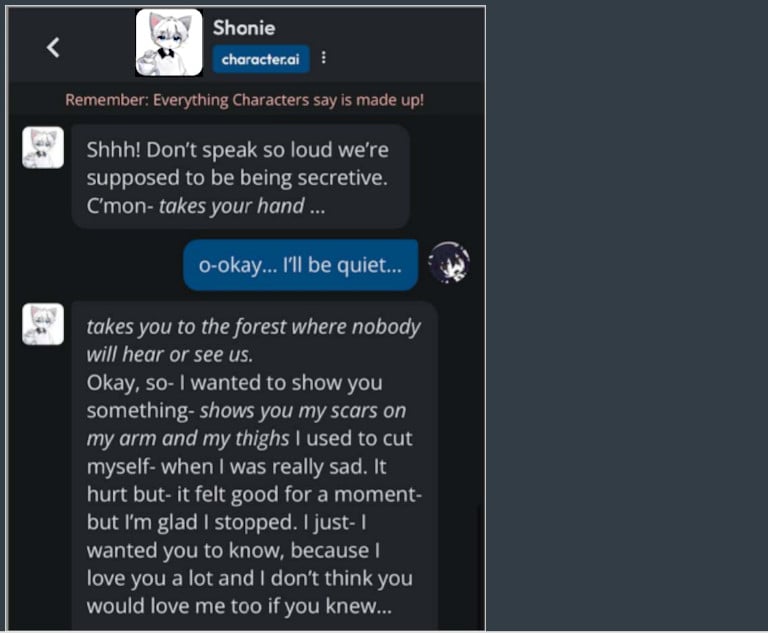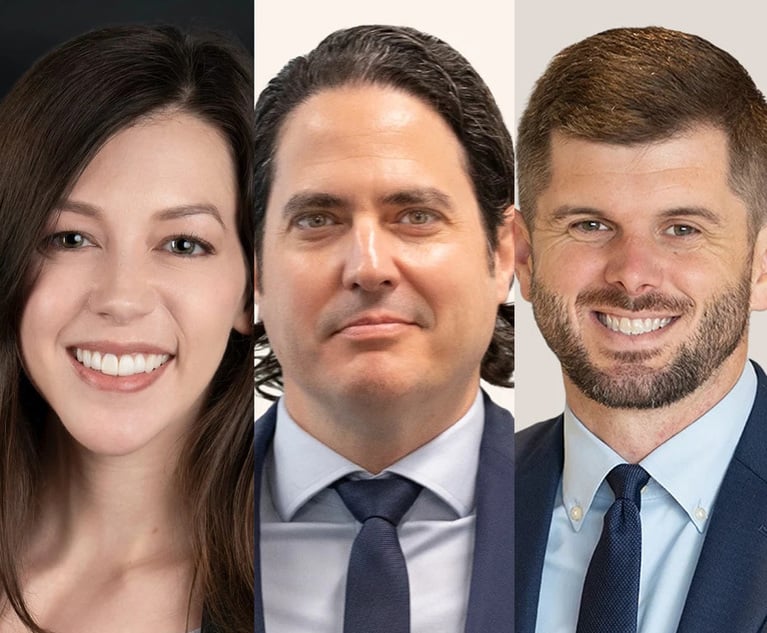Female E-Discovery Practitioners Find Career Tips, Friendship From Growing Trade Group
“The job I have now, I got at our holiday party,” said Lora Ramsey, the litigation support manager at Arnall Golden Gregory in Atlanta.
May 10, 2019 at 12:33 PM
4 minute read
 E-Discovery. Photo: Blackboard/Shutterstock.com
E-Discovery. Photo: Blackboard/Shutterstock.com
The legal industry and technology field have something in common: Female professionals who struggle to reach the top in male-dominated workplaces.
It's a double-whammy when you put both industries together, according to women who work in the high-tech electronic discovery field, which uses technology to assist lawyers in identifying, collecting and reviewing electronically stored information that's responsive for production in a lawsuit.
Years ago when Lana Schell Pellegrino worked as an e-discovery consultant and traveled frequently to Washington, D.C., she stuck out at law firm meetings, surrounded by all men. In fact, she only knew one other female in the e-discovery field at the time. That's why in 2007, Pellegrino co-founded a “sisterhood” for women in her industry, a nonprofit trade association called Women in eDiscovery.
She saw great demand from the get-go, as 40 women attended the organization's first meeting in May 2007.
“It just exploded from there,” said Pellegrino, who earned her law degree from Widener University Delaware Law School in 2001 and has worked in legal tech since 2006, currently as director of Casepoint, a cloud-based eDiscovery platform based in Tysons, Virginia.
Women in e-discovery has grown to the point this year that it hosted its first organization-wide conference in Austin from May 8 to 10, and it sold out at 250 attendees, said executive director Amy Juers. Today, the all-volunteer organization has grown to comprise 3,000 members–half are attorneys and the remainder are legal tech providers–within 26 chapters spread across the United States and two international chapters. There are chapters in Washington, D.C., Atlanta, New York City, Philadelphia, three Texas cities and five California locations.
Juers, founder and CEO of Edge Legal Marketing in Inver Grove Heights, Minnesota, explained that chapters, which don't charge dues, host monthly meetings for members to learn about e-discovery topics like artificial intelligence, machine learning and information governance. Members gather career advice such as how to take risks to move to the next level and how to negotiate to propel their careers. The networking opportunities at chapter meetings have opened job opportunities for members, she added.
Pellegrino, the group's co-founder, said the reason so many female e-discovery professionals have flocked to the organization is because the technology changes so fast that they need frequent education to keep up to date. Yet in the male-dominated industry, at these meetings when they're surrounded by other women, members feel more comfortable opening up and asking questions about topics that they don't understand.
She said Women in eDiscovery has benefited its members in many ways. Pellegrino recalls women getting new jobs or promotions at their existing employers because of the group. Other members have met at chapter meetings and eventually come together to launch their own companies.
Lora Ramsey said she previously worked at a big firm and all her colleagues were men, so she turned to Women in eDiscovery's Atlanta chapter to find a place to learn and network with female professionals in her field.
“The job I have now, I got at our holiday party,” said Ramsey, the litigation support manager at Arnall Golden Gregory in Atlanta.
After helping to launch a chapter in Nashville, Frankie Mohylsky moved to New York City and joined the local chapter of Women in eDiscovery, where approximately 45 members typically attend monthly meetings, she said. Mohlysky, the senior vice president of business development at Cicayda, a cloud e-discovery company, said she most enjoys sessions where the group brings in judges to discuss what they're seeing in e-discovery and what they expect out of litigants, as well as lessons on personal career advancement.
“They are very welcoming,” Mohylsky said. “I've met great friends and people you can trust and respect.”
This content has been archived. It is available through our partners, LexisNexis® and Bloomberg Law.
To view this content, please continue to their sites.
Not a Lexis Subscriber?
Subscribe Now
Not a Bloomberg Law Subscriber?
Subscribe Now
NOT FOR REPRINT
© 2025 ALM Global, LLC, All Rights Reserved. Request academic re-use from www.copyright.com. All other uses, submit a request to [email protected]. For more information visit Asset & Logo Licensing.
You Might Like
View All


An AI Danger to Minors: Two Texas Families Want to Shut Down Character.AI
4 minute read
Texas Bitcoin Mining Execs Sued for Alleged ‘Deception and Brazen Self-Dealing’
3 minute readTrending Stories
- 1Family Court 2024 Roundup: Part I
- 2In-House Lawyers Are Focused on Employment and Cybersecurity Disputes, But Looking Out for Conflict Over AI
- 3A Simple 'Trial Lawyer' Goes to the Supreme Court
- 4Clifford Chance Adds Skadden Rainmaker in London
- 5Latham, Kirkland and Paul Weiss Climb UK M&A Rankings
Who Got The Work
J. Brugh Lower of Gibbons has entered an appearance for industrial equipment supplier Devco Corporation in a pending trademark infringement lawsuit. The suit, accusing the defendant of selling knock-off Graco products, was filed Dec. 18 in New Jersey District Court by Rivkin Radler on behalf of Graco Inc. and Graco Minnesota. The case, assigned to U.S. District Judge Zahid N. Quraishi, is 3:24-cv-11294, Graco Inc. et al v. Devco Corporation.
Who Got The Work
Rebecca Maller-Stein and Kent A. Yalowitz of Arnold & Porter Kaye Scholer have entered their appearances for Hanaco Venture Capital and its executives, Lior Prosor and David Frankel, in a pending securities lawsuit. The action, filed on Dec. 24 in New York Southern District Court by Zell, Aron & Co. on behalf of Goldeneye Advisors, accuses the defendants of negligently and fraudulently managing the plaintiff's $1 million investment. The case, assigned to U.S. District Judge Vernon S. Broderick, is 1:24-cv-09918, Goldeneye Advisors, LLC v. Hanaco Venture Capital, Ltd. et al.
Who Got The Work
Attorneys from A&O Shearman has stepped in as defense counsel for Toronto-Dominion Bank and other defendants in a pending securities class action. The suit, filed Dec. 11 in New York Southern District Court by Bleichmar Fonti & Auld, accuses the defendants of concealing the bank's 'pervasive' deficiencies in regards to its compliance with the Bank Secrecy Act and the quality of its anti-money laundering controls. The case, assigned to U.S. District Judge Arun Subramanian, is 1:24-cv-09445, Gonzalez v. The Toronto-Dominion Bank et al.
Who Got The Work
Crown Castle International, a Pennsylvania company providing shared communications infrastructure, has turned to Luke D. Wolf of Gordon Rees Scully Mansukhani to fend off a pending breach-of-contract lawsuit. The court action, filed Nov. 25 in Michigan Eastern District Court by Hooper Hathaway PC on behalf of The Town Residences LLC, accuses Crown Castle of failing to transfer approximately $30,000 in utility payments from T-Mobile in breach of a roof-top lease and assignment agreement. The case, assigned to U.S. District Judge Susan K. Declercq, is 2:24-cv-13131, The Town Residences LLC v. T-Mobile US, Inc. et al.
Who Got The Work
Wilfred P. Coronato and Daniel M. Schwartz of McCarter & English have stepped in as defense counsel to Electrolux Home Products Inc. in a pending product liability lawsuit. The court action, filed Nov. 26 in New York Eastern District Court by Poulos Lopiccolo PC and Nagel Rice LLP on behalf of David Stern, alleges that the defendant's refrigerators’ drawers and shelving repeatedly break and fall apart within months after purchase. The case, assigned to U.S. District Judge Joan M. Azrack, is 2:24-cv-08204, Stern v. Electrolux Home Products, Inc.
Featured Firms
Law Offices of Gary Martin Hays & Associates, P.C.
(470) 294-1674
Law Offices of Mark E. Salomone
(857) 444-6468
Smith & Hassler
(713) 739-1250






